Search
Search Results
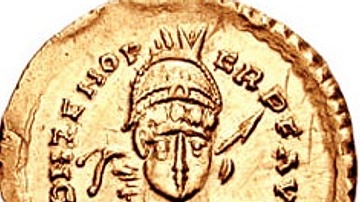
Definition
Odoacer
Odoacer (433-493 CE, reigned 476-493 CE) also known as Odovacar, Flavius Odoacer, and Flavius Odovacer, was the first king of Italy. His reign marked the end of the Roman Empire; he deposed the last emperor, Romulus Augustulus, on 4 September...
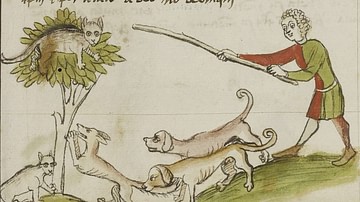
Article
Cats in the Middle Ages
Cats in the Middle Ages were generally disapproved of, regarded as, at best, useful pests and, at worst, agents of Satan, owing to the medieval Church and its association of the cat with evil. Prior to the widespread acceptance of Christianity...

Definition
Sextus Julius Caesar
Sextus Julius Caesar (died 90 or 89 BCE) was Roman politician in the first quarter of the first century BCE. In our sources, he is sometimes called Lucius. The end of the second century BCE witnessed the rise of new families in Roman politics...

Definition
Dante Alighieri
Dante Alighieri (1265-1321) was an Italian poet and politician most famous for his Divine Comedy (c. 1319) where he descends through Hell, climbs Purgatory, and arrives at the illumination of Paradise. Dante meets many historical characters...
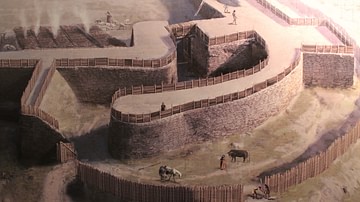
Definition
Oppidum - The Hilltop Fort of the Celts
Celtic hilltop forts, often called oppida (sing. oppidum), after the Latin name given to larger settlements by the Romans, were built across Europe during the 2nd and 1st century BCE. Surrounded by a fortification wall and sometimes with...

Definition
The Medieval Church
Religious practice in medieval Europe (c. 476-1500) was dominated and informed by the Catholic Church. The majority of the population was Christian, and "Christian" at this time meant "Catholic" as there was initially no other form of that...
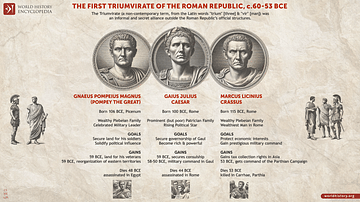
Definition
First Triumvirate
The First Triumvirate of ancient Rome was an uneasy alliance between the three titans Julius Caesar, Pompey, and Crassus which, from 60 BCE until 53 BCE, dominated the politics of the Roman Republic. Alliances have always been a part of history...

Definition
Martin Luther
Martin Luther (l. 1483-1546) was a German priest, monk, and theologian who became the central figure of the religious and cultural movement known as the Protestant Reformation. Even though earlier reformers had expressed Luther's views, his...
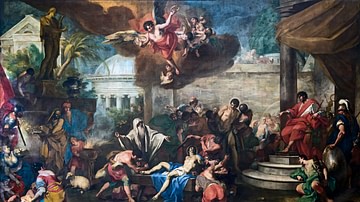
Definition
Martyr
A martyr is someone who voluntarily dies for either a religious or secular cause. The word originates from "witness" in Greek and is related to a witness in court testifying to one's beliefs or truth, despite the risk involved. As such, it...
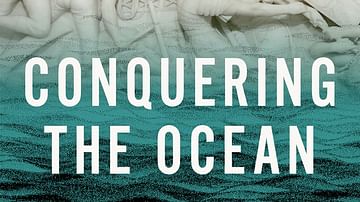
Interview
Interview: Conquering the Ocean by Richard Hingley
In this interview, World History Encyclopedia sits down with author Richard Hingly to chat about his new book Conquering the Ocean: The Roman Invasion of Britain published by Oxford University Press. Kelly: Do you want to tell us a bit about...